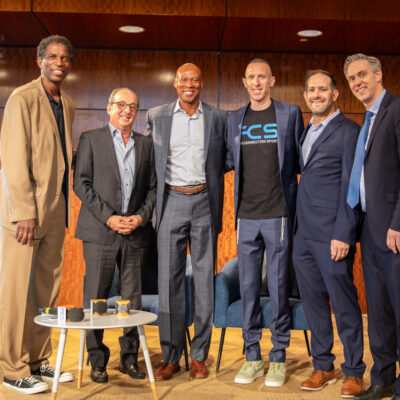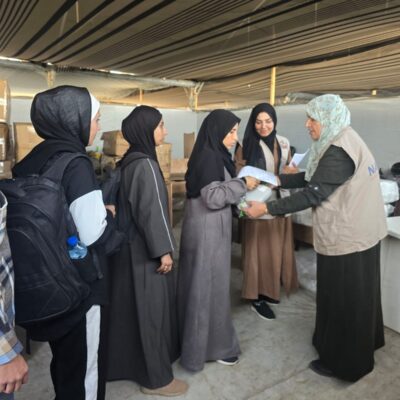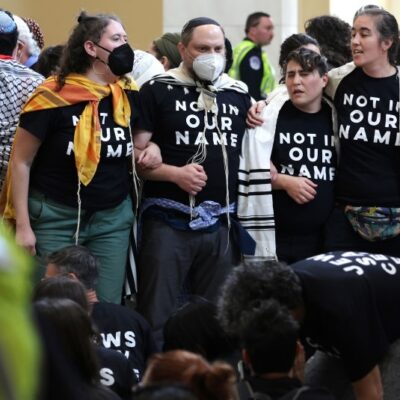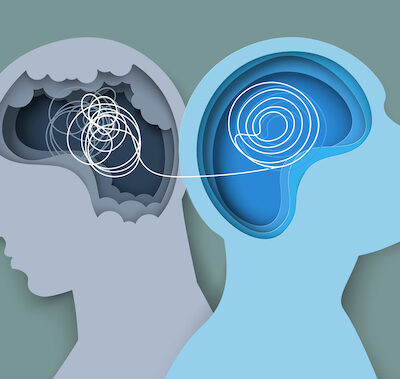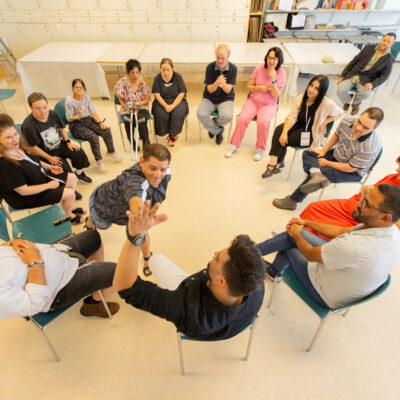Opinion
TISHA B'AV THOUGHTS
Remembering to cherish: From Station Eleven to Jerusalem

Back in May, The New York Times reported on a list of “pro-Israel/Zionist writers” circulating through the literary world along with a call to boycott their work: “Titled ‘Is Your Fav Author a Zionist?,’ it reads like a cross between ‘Tiger Beat’ and ‘The Protocols of the Elders of Zion.’”
Canadian writer Emily St. John Mandel appears prominently in the list; that’s reason enough to buy her books, but it helps that they tend to be both literary masterpieces and page-turners. Prompted by the boycott, I defiantly decided to read Station Eleven, one of St. John Mandel’s most famous novels and now also a TV show. The book is part of the post-apocalyptic dystopia genre, imagining a world where civilization has collapsed and survivors struggle to survive. Mandel’s writing reflects her love for her characters, and the result is a deeply human book in which the apocalypse is just a setting for profound and highly relatable human drama.
I must admit that it takes some courage to read a post-apocalyptic tale in today’s ominous political environment, when we feel that so much is falling apart. And yet, there’s poignancy in strolling through Mandel’s world of lawlessness and decay as we approach Tisha b’Av, the day that our own Jerusalem became rubble and an entire world collapsed 1,954 years ago.
One of the things that struck me most in Station Eleven is how much tenderness Mandel shows for the world that is gone. At many points in the book, the characters born “after the collapse” can’t conceive of the things that people enjoyed in the old world: opening a faucet and getting hot water; flicking a switch and bathing a room in bright light; getting on an airplane and reaching any corner of the globe; taking an antibiotic instead of dying from an infected cut. In a particularly harrowing scene, a character called Clark reminisces about snow globes, the kitschy souvenirs, observing that he wouldn’t have even noticed one before the collapse:
“Clark had always been fond of beautiful objects, and in his present state of mind, all objects were beautiful. He found himself moved by every object, by the human enterprise each object had required. Consider the snow globe. Consider the mind that invented those miniature storms, the factory worker who turned sheets of plastic into white flakes of snow, the hand that drew the plan for the miniature city, the assembly-line worker who watched the globe glide past on a conveyor belt somewhere in China. Consider the white gloves on the hands of the woman who inserted the snow globes into boxes, to be packed into larger boxes, crates, shipping containers. Consider the card games played below decks in the evenings on the ship carrying the containers across the ocean, a hand stubbing out a cigarette in an overflowing ashtray, a haze of blue smoke in dim light, the cadences of a half dozen languages united by common profanities, the sailors’ dreams of land and women, these men for whom the ocean was a gray-line horizon to be traversed in ships the size of overturned skyscrapers. Consider the signature on the shipping manifest when the ship reached port, a signature unlike any other on earth, the coffee cup in the hand of the driver delivering boxes to the distribution center, the secret hopes of the UPS man carrying boxes of snow globes.”
Clark realizes that the world he inhabited in the early 21st century was full of beautiful things, and that it was functioning almost seamlessly on a delicate and improbable web of interrelations built with enormous effort and almost superhuman ingenuity. He realizes that all that was taken for granted, remembering that he would complain about the half-hour delay in his flight without valuing that he was riding in a 300-ton metal monster that somehow managed to fly.

I imagine this is how the survivors felt in the aftermath of the destruction of Jerusalem, the churban. This generation saw Jerusalem at the peak of its glory: A city with a population that wouldn’t be matched again until the 20th century, the Temple at its center considered one of the wonders of the world. In the aftermath of the catastrophe, they must have been consumed by regret, realizing that they took miracles for granted and that they’d seen magnificent rituals as routine. They must have felt unspeakably guilty for not having cared for their treasures; for treating them with callousness and entitlement, not realizing how blessed they had been.
We hear all the time how bad our world is. Before the 2016 U.S. election, Michael Anton likened America to United Flight 93: hijacked by evil forces and heading for disaster. Rather than let the so-called hijackers complete their plan, there was no choice but to elect somebody who would crash the “plane” into the ground, destroying the hopeless political system.
Anton sounded like Simon Bar Giora, the zealot who convinced Jews to launch a hopeless rebellion against Rome. The truth is that neither 21st-century America nor first-century Judea needed to crash the plane for the greater good.
We aren’t doomed. Yes, we live in anguish and fear. America’s political system shows ominous cracks through which people are left behind. Israel is stuck in a protracted war. The world seems to have gone mad in so many ways — yet would you prefer to live in any other time? In which historical period were humans better off, safer, healthier and more self-fulfilled than today?
The catastrophist discourse demeaning our present age is used by both left and right. At the recent Republican National Convention, vice-presidential nominee Sen. J.D. Vance talked about how “America doesn’t work.” A poor Appalachian boy from a broken family who studied on scholarships, became a millionaire and now contends for the vice presidency is the best proof that America does work. At the same time, the left demonizes America over racism — an enduring problem, to be sure — but glosses over the enormous progress America has made in paying its “promissory note” to people of color, a term invoked by Martin Luther King in his 1963 “I Have a Dream” speech. They vilify Western civilization for having used slavery and imperialism but forget that what’s unique to our civilization is not the existence of those scourges, around since the dawn of time, but their abolition. They call to “deconstruct” (aka destroy) a system that, though imperfect, has been making steady progress, and replace it with some utopian vision that has never been realized anywhere on earth.
Like the Jews of Jerusalem in 70 CE, we have forgotten one of the most important human traits: gratitude. I, for one, fear that an annoyed God will finally behave like a parent who has lost patience and say, “You want to cry? I’ll give you something to cry about.”
I’m not minimizing the problems we have, the anguish we experience and the tragedies that surround us. They are all very real and very painful, and we should work to address them. But this Tisha b’Av, let’s bathe in humility and bask in wonder at the many overlooked and underappreciated miracles that make up our daily lives. Let’s value all that we have, big and small, because Tisha b’Av teaches us that nothing is safe; we can lose everything without having ever enjoyed it. Let’s develop what French philosopher Simone Weil called “a patriotism of compassion,” a feeling of love for our nation(s) that is a “tenderness for a beautiful thing that is both precious and perishable.”
Maybe if we cherish what we have, we won’t become the Jews of 2,000 years ago, lamenting what we’ve lost.
It’s either that or ending up like Clark in Station Eleven, tearfully recalling a snow globe.
Andrés Spokoiny is the president and CEO of the Jewish Funders Network.

 Add EJP on Google
Add EJP on Google
